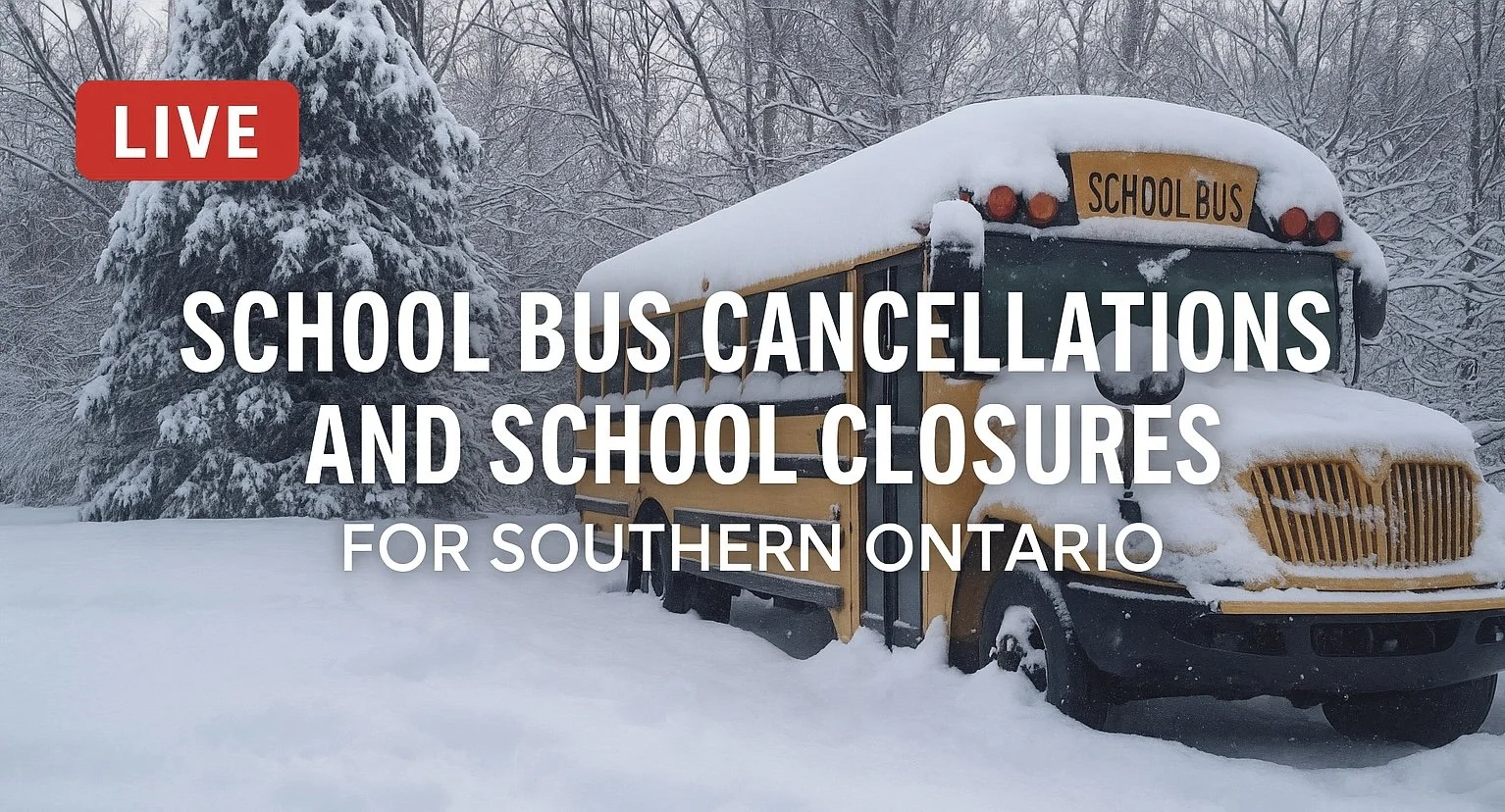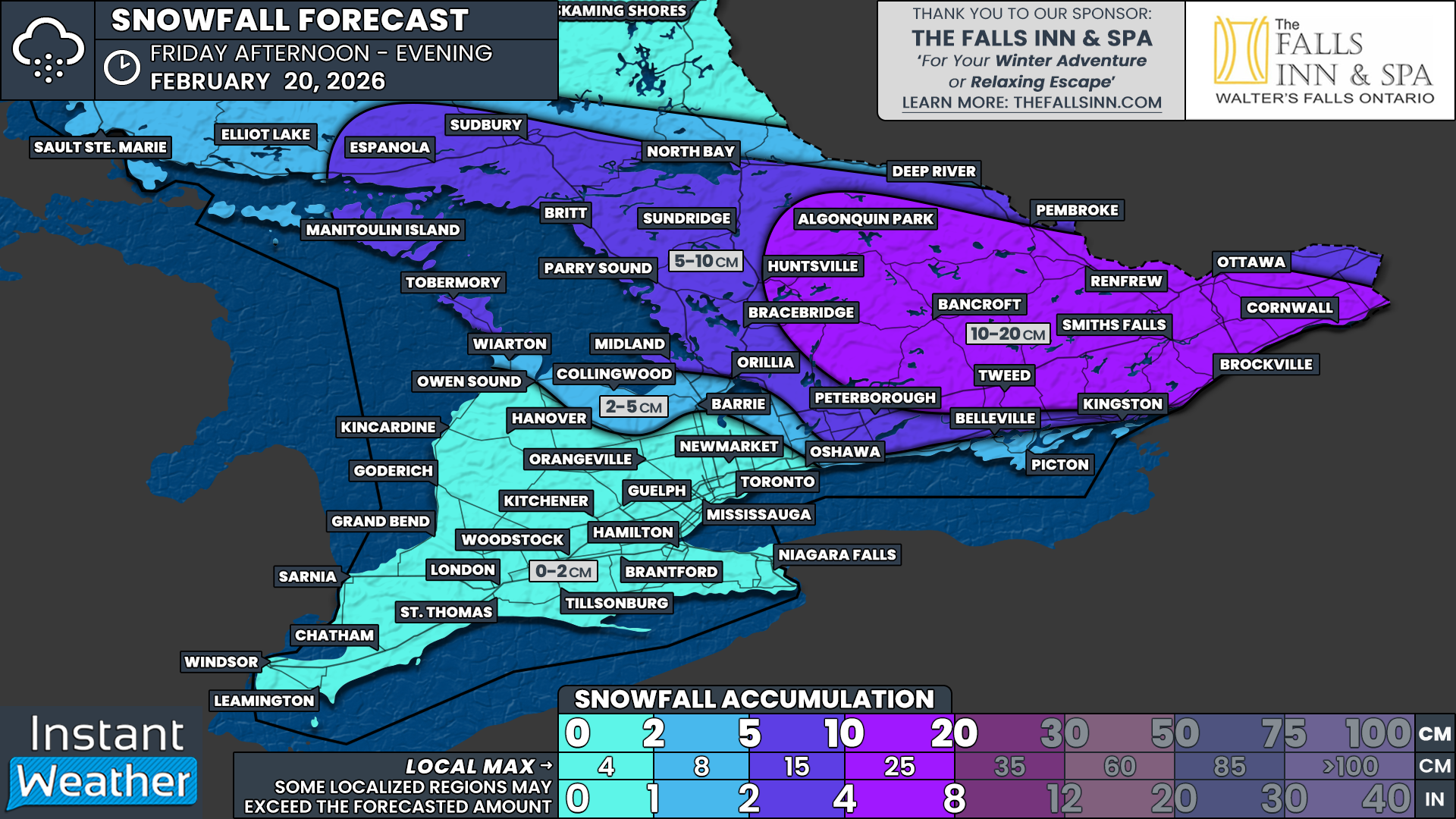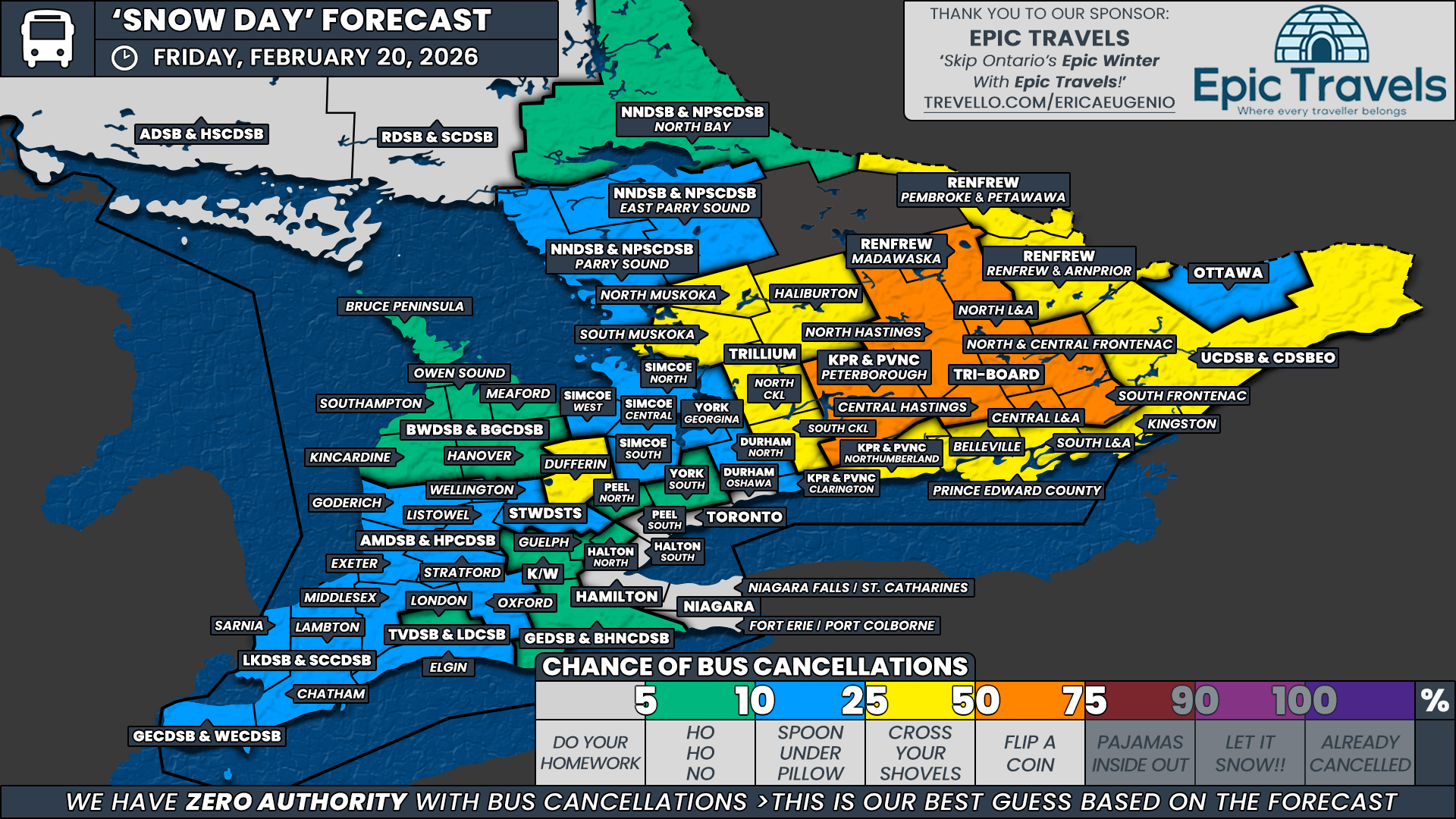Strong Winter Storm Expected to Bring Over 30cm of Snow and Prolonged Freezing Rain to the Maritimes
/The winter storm that we’ve been tracking is bearing down on the Maritimes and things are going to be messy over the next couple of days. Not only will this storm bring significant amounts of snow to parts of New Brunswick and Prince Edward Island, but there is expected to be several hours of freezing rain across Nova Scotia.
The storm will make its way into the region at around 9-10am on Thursday, with snow crossing eastward into New Brunswick from Maine and Quebec. The snow will quickly cross the province throughout the remainder of the morning, with the leading edge reaching PEI by 1-2pm.
By the early afternoon, more intense snowfall will begin to fall in New Brunswick. This heavy snow will persist for several hours across most of Central and Northern New Brunswick, at rates of 3-5cm/hr, which will rapidly result in over 30cm of snowfall accumulation by the end of the day.
Prince County, PEI can also expect some heavier snowfall beginning in the mid-afternoon and continuing into the evening, which will lead to overall accumulations of 15-30cm. The heavy snowfall will start to weaken during the evening, but light snow is expected to continue to fall overnight and through early Friday morning across Northern New Brunswick and into PEI.
Model Image showing the location and intensity of snow (Blue), Rain (Green), Freezing rain (Pink), and Ice pellets (Orange) at 5PM AT Thursday
Snowfall totals decrease moving southward through New Brunswick and eastward across PEI because the forecast is a bit more complicated there, along with throughout Nova Scotia. Precipitation will reach the western shores of Nova Scotia at around 10-11am Thursday, not long after it starts in New Brunswick. The leading edge of the storm will see the precipitation start off as light snow as it crosses the province, but it will very quickly transition over to freezing rain, with a brief period of ice pellets in between.
This change in precipitations types will occur as a result of warm air aloft nudging its way into the region from the south. The warmer air will spread across a wide area and will lead to pronged freezing rain over much of Nova Scotia, with upwards of 5mm of ice accretion on untreated surfaces.
Precipitation Types with temperature profiles
The depth of the layer of warm air will play a critical role in precipitation type. As the warm air tries to push further northward, the layer will become shallower and this will lead to a slightly longer period of ice pellets (also called sleet) before it eventually switches over to freezing rain.
This will be the case in Northern Nova Scotia and into Cape Breton Island, as well as with most of PEI and Southern New Brunswick. In these areas, the ice pellets will add to the prior snowfall totals before there is a short-lived period of freezing rain and therefore less ice accretion overall.
Eventually, the warm air will reach the surface and temperatures will climb above freezing, starting in Western Nova Scotia at roughly 2-3pm. This will lead to the precipitation making a final transition from freezing rain to rain for a few hours as the storm continues to cross the region.
The precipitation across the region will taper off throughout Thursday evening. As previously mentioned, some light snow is expected to continue in Northern New Brunswick and PEI overnight, however, freezing rain is also expected to last in Cape Breton into the early morning hours of Friday as well.
This storm is expected to bring some strong wind gusts to go alongside with the mixed bag of precipitation throughout the Maritimes. The gusts are expected to be the strongest across Nova Scotia, with gusts of 60-90km/h for the duration of the storm across the Mainland and over 100km/h in Northern Cape Breton. In New Brunswick and PEI, winds will be weaker, but gusts up to 60km/h are likely.
Luckily, the temperatures climbing after the freezing rain will help melt the ice buildup off of surfaces, especially from trees and power lines, ahead of stronger winds expected on Friday.










